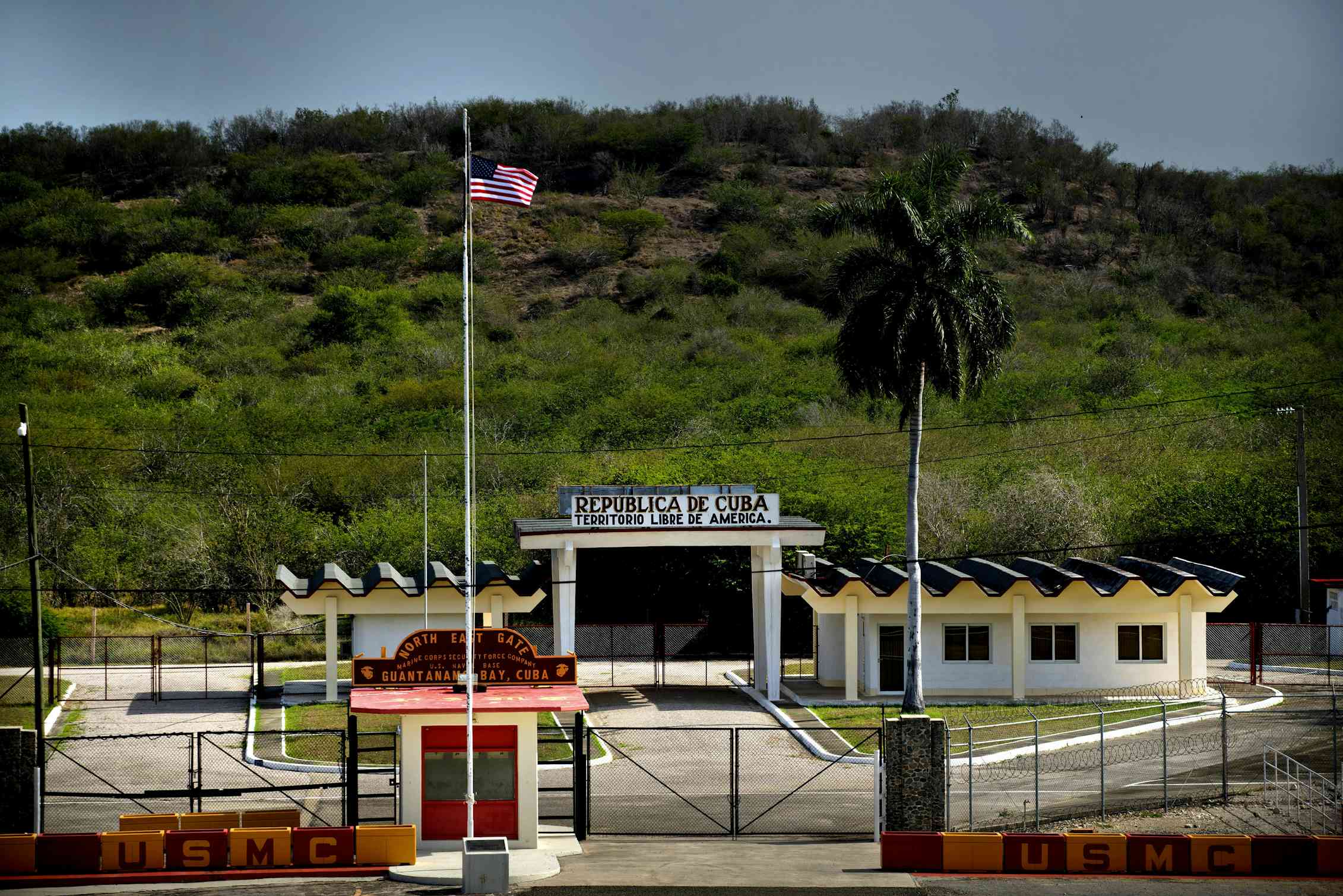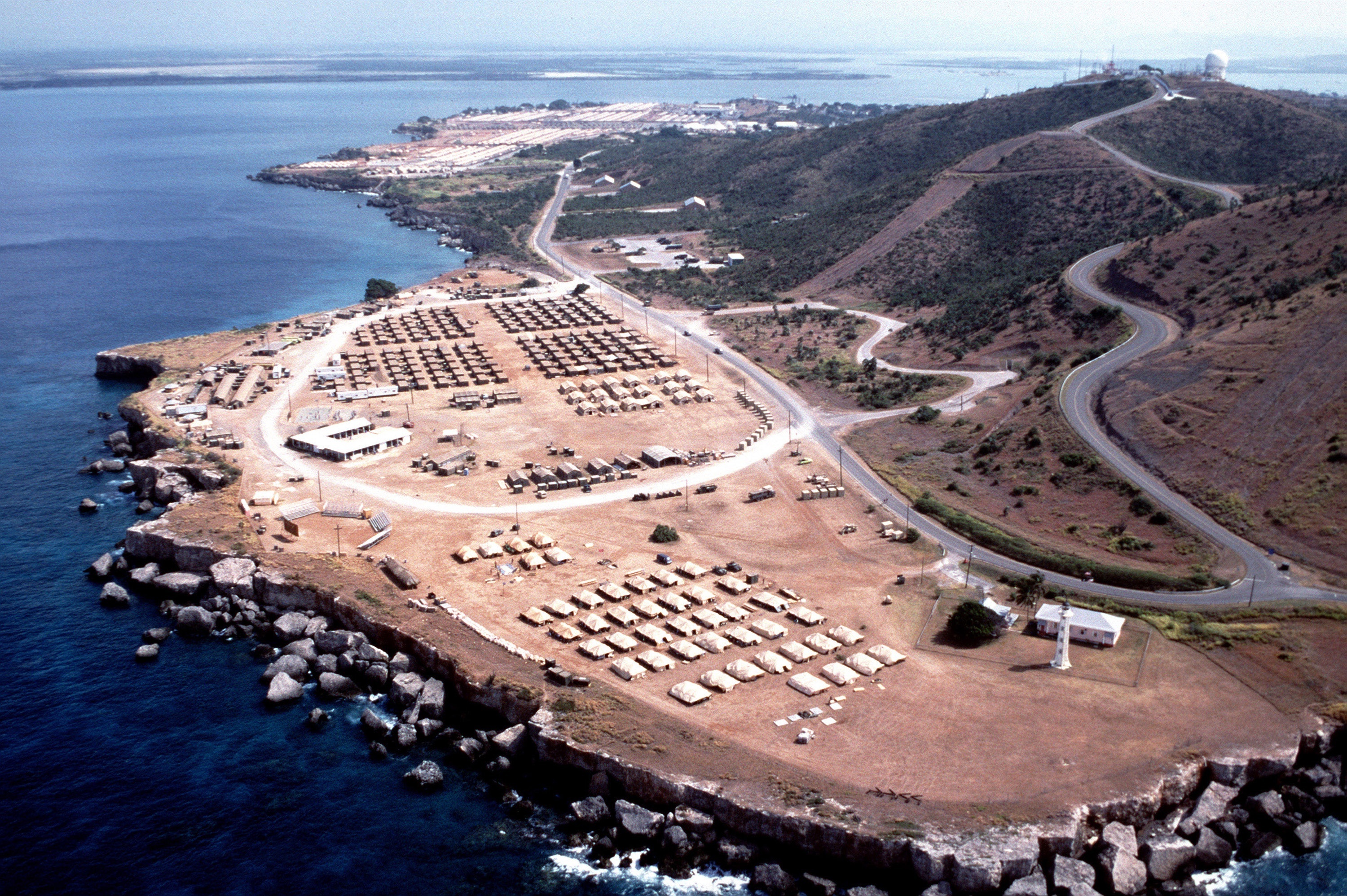Let’s talk about Guantanamo Bay—a name that sparks both curiosity and controversy. For years, it’s been at the center of heated debates, international scrutiny, and a lot of misinformation. But what exactly is Guantanamo Bay, and why does it matter so much? In this article, we’ll break it down for you, no sugarcoating, just the raw facts. Whether you’re here out of curiosity or because you want to understand its role in global politics, we’ve got you covered.
Guantanamo Bay isn’t just some random location; it’s a detention facility located in Cuba, operated by the United States. This place has become infamous for its role in the War on Terror, and it’s where a lot of questions about human rights, justice, and international law have been raised. So, buckle up because we’re diving deep into the world of Guantanamo Bay.
What makes Guantanamo Bay so controversial isn’t just its existence—it’s the stories that come out of it. From alleged human rights abuses to the debate over whether it should even exist, this place has been a hot topic for politicians, activists, and everyday people alike. We’ll explore all sides of the story, so you can form your own opinion based on facts, not hearsay.
Read also:Kannada Movie Rulez2 Com Your Ultimate Destination For Entertainment
Understanding Guantanamo Bay: A Brief History
Guantanamo Bay wasn’t always the detention center we know today. Its history goes way back, and understanding that history is key to grasping its significance. The U.S. acquired control of Guantanamo Bay in 1903 through a treaty with Cuba, and it became a naval base. But it wasn’t until after 9/11 that it gained its infamous reputation.
After the attacks on September 11, 2001, the U.S. government decided to use Guantanamo Bay as a detention facility for suspected terrorists. The idea was to keep them away from the U.S. legal system, which sparked a lot of debate about whether that was even legal. Over time, Guantanamo Bay became synonymous with controversy, and it’s still a topic of discussion today.
Why Guantanamo Bay Became Controversial
The controversy surrounding Guantanamo Bay didn’t happen overnight. It started with the way detainees were treated, or rather, how they allegedly weren’t treated. Reports of torture, indefinite detention without trial, and other human rights abuses began to surface, and they didn’t paint a pretty picture.
Here’s a quick rundown of some of the main issues:
- Torture Allegations: Many detainees claimed they were subjected to torture techniques like waterboarding and sleep deprivation.
- Indefinite Detention: Some detainees have been held for years without being charged or given a trial, which raises serious legal questions.
- Transparency Issues: The lack of transparency in the operations of Guantanamo Bay has made it difficult to verify claims on either side.
Guantanamo Bay: The Legal Perspective
From a legal standpoint, Guantanamo Bay is a gray area. The U.S. government argues that it’s outside the jurisdiction of U.S. courts, which means detainees don’t have the same legal rights as prisoners on American soil. Critics, however, say this is a violation of international law and human rights principles.
Several court cases have challenged the legality of Guantanamo Bay, and some have even made it to the Supreme Court. The rulings have been mixed, but they’ve all contributed to the ongoing debate about whether Guantanamo Bay should exist in its current form.
Read also:Hdhub4u Hollywood Your Ultimate Gateway To Blockbuster Entertainment
Key Legal Challenges
Let’s break down some of the key legal challenges that have shaped the narrative around Guantanamo Bay:
- Hamm v. Rumsfeld: This case highlighted the issue of whether detainees have the right to challenge their detention in U.S. courts.
- Boumediene v. Bush: A landmark Supreme Court decision that granted Guantanamo detainees the right to habeas corpus, which allows them to challenge their detention.
- International Law: The U.N. and other international bodies have repeatedly criticized Guantanamo Bay for violating international human rights standards.
The Human Side of Guantanamo Bay
It’s easy to get lost in the legal and political jargon, but at the heart of it all are real people—detainees who have spent years in Guantanamo Bay without knowing when, or if, they’ll ever be free. Their stories are often overlooked in the broader debate, but they’re crucial to understanding the full picture.
Many former detainees have spoken out about their experiences, and their accounts paint a harrowing picture of life inside Guantanamo Bay. From the harsh conditions to the psychological toll of indefinite detention, these stories highlight the human cost of this controversial facility.
Stories From Detainees
Here’s a glimpse into the lives of some of the people who have been detained at Guantanamo Bay:
- Mohammed El Gharani: Detained at the age of 14, El Gharani spent seven years in Guantanamo before being released without charge. He has spoken publicly about the torture he endured.
- Murat Kurnaz: A German citizen who was detained for five years without charge, Kurnaz wrote a book about his experiences called “Five Years of My Life.”
- Mohammed Jawad: Detained as a teenager, Jawad was released without charge after spending years in Guantanamo. His case was one of the first to highlight the issue of child detainees.
Guantanamo Bay in the Global Context
Guantanamo Bay isn’t just an American issue; it’s a global one. Countries around the world have weighed in on its existence, and many have called for its closure. The U.N., the European Union, and various human rights organizations have all expressed concern about the facility and its impact on international relations.
But it’s not just governments and organizations that have opinions—ordinary people from all over the world have something to say about Guantanamo Bay. Social media has played a big role in shaping public perception, and it’s where a lot of the conversation happens today.
International Reactions
Here’s how some countries and organizations have responded to Guantanamo Bay:
- United Nations: The U.N. has repeatedly called for the closure of Guantanamo Bay, citing human rights concerns.
- European Union: The E.U. has also criticized the facility, urging the U.S. to close it down.
- Human Rights Watch: This organization has been a vocal critic of Guantanamo Bay, documenting alleged abuses and advocating for reform.
Efforts to Close Guantanamo Bay
There have been several attempts to close Guantanamo Bay over the years, but none have been successful so far. Presidents Obama and Biden both promised to shut it down during their campaigns, but they faced significant opposition from Congress and other stakeholders.
So, why is it so hard to close Guantanamo Bay? The reasons are complex, ranging from political considerations to logistical challenges. But the fact remains that until these issues are addressed, the facility is likely to remain open.
Challenges to Closing Guantanamo Bay
Here are some of the main challenges that have prevented Guantanamo Bay from being closed:
- Congressional Opposition: Many lawmakers have opposed closing Guantanamo Bay, citing national security concerns.
- Logistical Issues: Transferring detainees to other countries or facilities is easier said than done.
- Public Opinion: While many people support closing Guantanamo Bay, there’s also a significant portion of the population that believes it should stay open.
The Future of Guantanamo Bay
What does the future hold for Guantanamo Bay? That’s the million-dollar question, and the answer isn’t clear. With ongoing debates about its existence and the challenges of closing it, the facility is likely to remain a contentious issue for years to come.
But one thing is certain: the world is watching. Whether Guantanamo Bay continues to operate as it does now or undergoes significant changes, its impact on global politics and human rights will be felt for generations.
Possible Scenarios
Here are a few possible scenarios for the future of Guantanamo Bay:
- Closure: The facility could be shut down entirely, with detainees transferred to other locations.
- Reform: Guantanamo Bay could undergo reforms to address human rights concerns while remaining operational.
- Status Quo: The facility could continue operating as it does now, with no significant changes.
Conclusion: What You Can Do
We’ve covered a lot of ground in this article, from the history of Guantanamo Bay to its current controversies and potential future. But now it’s time for you to take action. Whether you’re passionate about human rights, international law, or just want to stay informed, there are things you can do:
Leave a comment below and let us know what you think about Guantanamo Bay. Share this article with your friends and family to keep the conversation going. And if you’re really serious about making a difference, consider supporting organizations that work to protect human rights and promote justice.
The story of Guantanamo Bay isn’t over yet, and your voice could help shape its next chapter. So, what are you waiting for? Get involved and make a difference!
Table of Contents
- Understanding Guantanamo Bay: A Brief History
- Why Guantanamo Bay Became Controversial
- Guantanamo Bay: The Legal Perspective
- The Human Side of Guantanamo Bay
- Guantanamo Bay in the Global Context
- Efforts to Close Guantanamo Bay
- The Future of Guantanamo Bay
- Conclusion: What You Can Do


